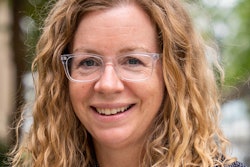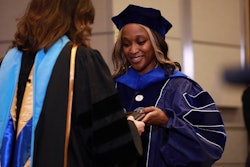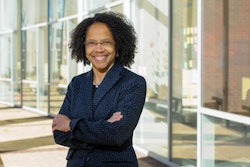UC System Has No Leeway to Consider Race in Admissions, Despite Recent Court Ruling
By Pamela Burdman
SAN FRANCISCO
Even though two federal courts have cleared the way for admissions offices in other states to consider racial diversity, a recent decision by California’s Supreme Court suggests that the nation’s first university to voluntarily ban affirmative action has not yet gone far enough toward race neutrality.
The first of the federal decisions came from the U.S. Court of Appeals in San Francisco, which covers nine western states, including California. The decision involves the University of Washington’s former admissions policy, and it gives a green light to using race in admissions. But Proposition 209’s prohibition on race-conscious decision-making means that the University of California has no leeway to do that.
“Unfortunately, the practical effect on UC or affirmative action cases in California is negligible, because of Proposition 209,” says Aisha Qaasim, staff attorney with the Mexican American Legal Defense and Education Fund.
In fact, the state Supreme Court’s recent ruling that outlawed a San Jose minority outreach program means that, if anything, the university must further tighten its affirmative action ban. Though UC’s regents adopted a race-neutral admissions policy in 1995, well before voters approved Prop. 209, the university has continued to use some forms of targeted outreach and recruitment, primarily in efforts to distribute information to minority students.
The court’s ruling that Prop. 209 bars minority outreach programs could jeopardize some of UC’s programs in elementary and secondary schools, as well as its efforts to recruit minority students. In a memo circulated recently, UC attorney Jim Holst wrote that certain programs “are highly vulnerable to legal challenge.”
The irony is that those programs were initiated with the backing of UC’s regents largely in order to reverse the downturn in minority enrollment at some UC campuses and professional schools under the race-neutral admissions regime. Since the adoption of Prop. 209, UC’s annual outreach budget has skyrocketed to $180 million.
Open to students of all races, these outreach programs tend to target students who come from poor families, students whose parents did not attend college and those who attend schools that typically send very few of their graduates to UC. Of the 90,000 students in these programs, about two-thirds are African American, Latino or American Indian, groups that are considered under-represented at UC.
The implications of the new ruling are being reviewed by officials on UC’s nine campuses. “There are a couple of outreach programs we’re going to have to take a close look at,” says Winston Doby, vice chancellor for student affairs at UCLA.
Among the vulnerable practices are phone calls placed by university officials to encourage admitted students to apply. Under-represented minority students are among the groups of students targeted in those calls, Doby says. Students with high grades are another.
No Wiggle Room
Another outreach program involves a partnership with community-based organizations to work with entire families to enhance their awareness about preparation for college. Doby says the organizations include the Society of Hispanic Professional Engineers and Concerned African American Parents of Diamond Bar.
“We need to take a look at the criteria that are used to select those organizations to make sure they are in compliance,” Doby says.
Officials at several campuses say they believe their programs already comply with the new ruling, because they target broad populations.
“I think the university has great leeway,” says Francisco Hernandez, vice chancellor for student affairs at UC Santa Cruz. “Our attempts to ‘target’ populations are just an expansion of our communication effort. If we print things in Spanish, that’s opening up the information that’s available, not limiting it.”
UC’s medical schools target their outreach efforts at areas of the state that don’t send a lot of applications, says Michael Drake, UC’s vice president for health affairs.
UC’s law schools also appear to target many different constituencies. “We made a decision early on not to do racially targeted outreach, but to target it according to socioeconomically disadvantaged status, along with other criteria like strength as a student and desire to go to law school,” says Leo
Trujillo-Cox, of UCLA’s law school.
Linda Krieger, a professor at UC Berkeley’s Boalt Hall School of Law, has other concerns about the ruling on outreach: “I think the greatest danger with the (California) opinion is that it will …. rhetorically invalidate civil rights discourse,” she says. “One could, if one were ideologically predisposed to do so, read the case as a condemnation of race-consciousness of any kind.”
Indeed, that seems to be the interpretation of Ward Connerly, the UC regent who championed the 1995 regents’ resolution: “This case really slams the door on all race-conscious activities, including race-focused outreach,” Connerly says. “It does not leave any wiggle room.”
Nevertheless, proponents of affirmative action are taking some heart from the federal decisions involving universities in Michigan and Washington.
“What is important about those cases is that you have two institutions that have done an excellent job of making the point that all types of diversity are important to educating students,” says Kimberly West-Faulcon, western regional counsel with the NAACP Legal Defense and Educational Fund.
UC Regent Bill Bagley, who has been waiting for an opportunity to reverse the university’s position on affirmative action, believes the federal decisions could lend weight to his cause.
Revoking the regents’ 1995 resolution would not have a practical effect on university regulations, because of Prop. 209. But Bagley believes the action could dispel the stigma that accompanied the regents’ action — and encourage more top minority students to accept the university’s offers of admission.
“We’re cleansing our soul,” Bagley says. “We’re saying, ‘You are welcome. If you ever doubted it, here’s a dramatic demonstration with exclamation points. Prop. 209 still prevails. Let’s just get the university out of the mix.”
Whatever happens at the university, the matter appears headed for the U.S. Supreme Court, because the two federal decisions conflict with a ruling from a federal appeals court in New Orleans. But even if the nation’s highest court were to defend affirmative action practices, things may not change in California. The result would most likely affirm the status quo: allowing, but not requiring, race-conscious policies.
© Copyright 2005 by DiverseEducation.com





















